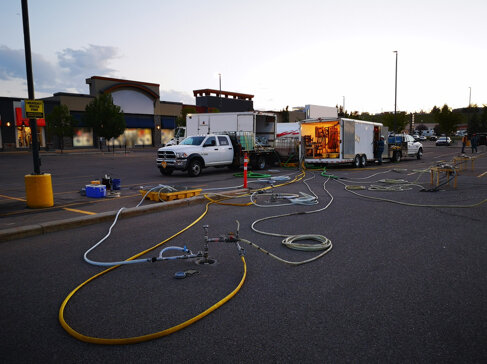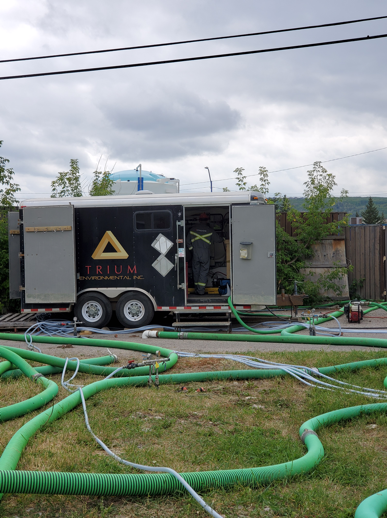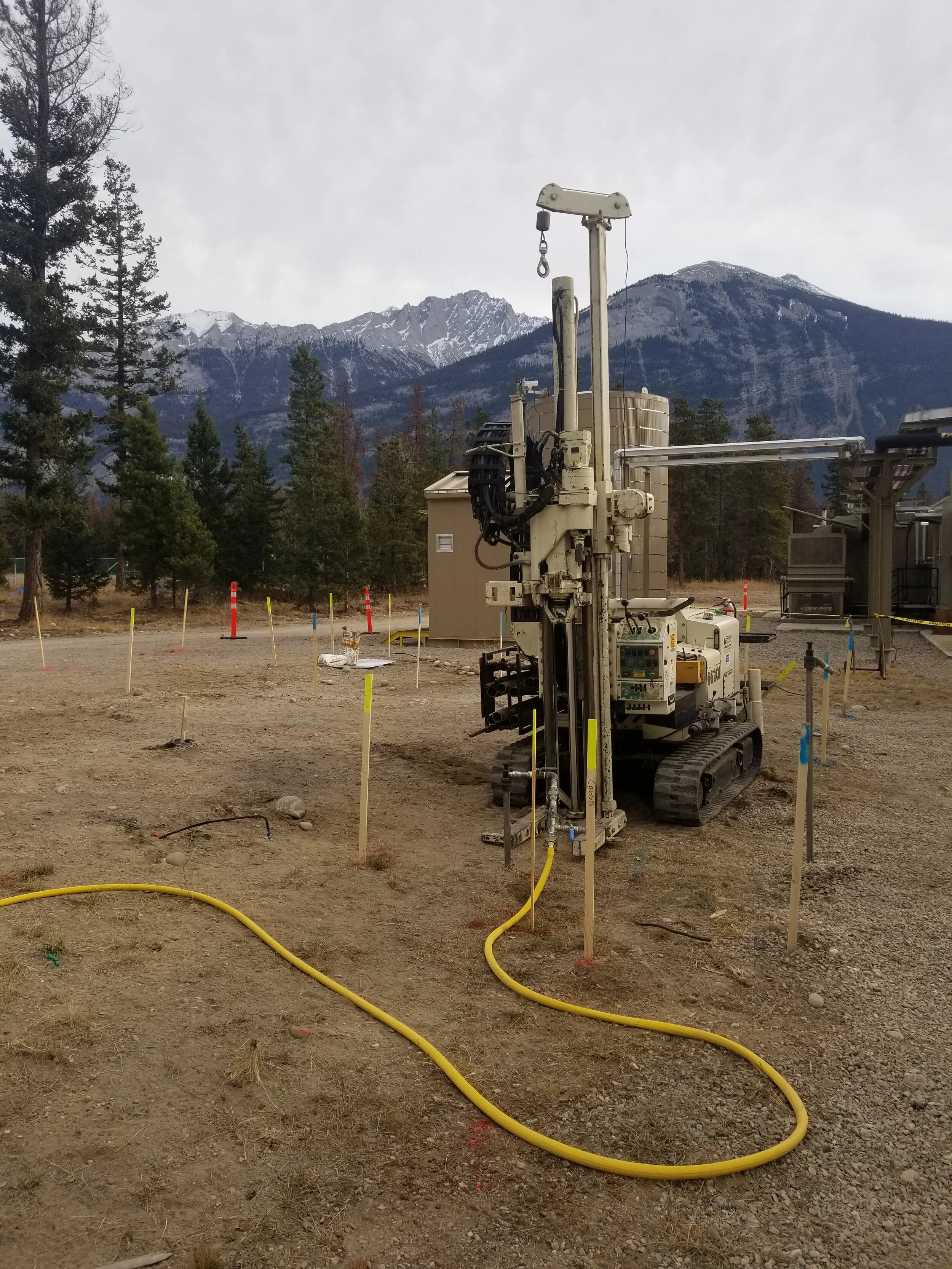Risk Based In-Situ Chemical Oxidation

Risk Based In-Situ Chemical Oxidation
Pipeline Release
Location: Pipeline release, Central, Alberta
When: 2018-2019
Contaminant of Concern: BTEX, F1, and F2
Impacted Media and Volume: 200 m3 impacted soil and groundwater
Tasks: Remediation Program Design, Injection Well Installation, Blending, Multi-oxidant approach, and Field applications
The Problem
Pipeline release was being treated using a multi-phase extraction system for non-aqueous phase liquids (NAPL). Residual contamination was unable to be treated using the current system. Lithology at the site comprised of clay with sand lenses as preferential pathways. Petroleum hydrocarbon impacts from 4 to 6 meters below ground surface.
The Approach
Risk based in-situ chemical oxidation (ISCO) program based on 1.5 to 2.5 meter injection radius of influence. Establish health and safety protocol and site logistics for handling oxidizer.
Installed 12 injection wells and injected 6,500 liters of blended 12% EHP (enhanced hydrogen peroxide) oxidant followed with 3,700 litres of a sodium persulfate 15% blend. Blending is site specific following TRIUM’s ChemOx® process.
The Results
Plume area meets all criteria
Removal of all remaining residual NAPL
Very short timeframe of treatment
Excellent reductions noted with injection distributions exceeding planned performance












